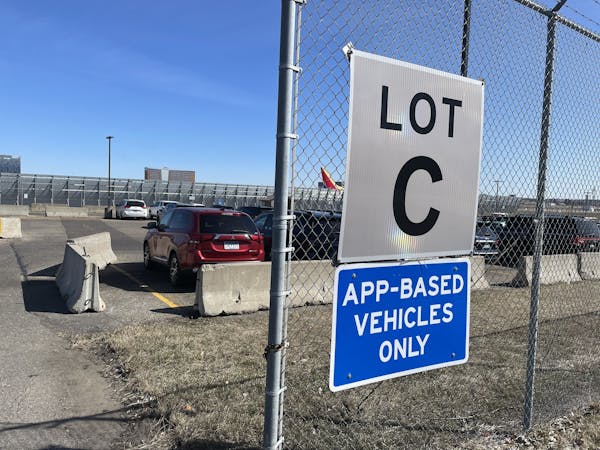DFL leaders and the governor's office are negotiating with drivers' groups and rideshare apps to try to reach a deal on a package of state rules that would prevent Uber and Lyft from leaving Minneapolis on May 1.
"All the parties — the drivers, Uber and Lyft, the governor's office — are working on a deal," said Sen. Matt Klein, DFL-Mendota Heights. Klein chairs the Commerce Committee, the legislation's next stop once negotiators agree on changes to a bill sponsored by Sen. Omar Fateh, DFL-Minneapolis.
"We're not there yet, but I think we have a lot to build on," said House Majority Leader Jamie Long, DFL-Minneapolis. He said legislators are talking with drivers, Uber, Lyft and the governor about issues of insurance, driver deactivation and the all-important minimum pay rate.
After Gov. Tim Walz vetoed Fateh's minimum-pay bill last year, he ordered a working group to study how to regulate rideshare apps to create a base pay for drivers in line with state and local minimum wages.
The working group released a set of recommendations at the end of December. But the group, which included legislators, Lyft and Uber representatives, drivers and labor union representatives, among others, did not agree on a base pay rate.
Joel Carlson, who has lobbied for Uber for more than a decade, said the company backed all 24 of the working group's recommendations.
The sticking points for Uber, he said, are base pay — the company does not agree with many aspects of a state study released this month that found drivers often earn less than minimum wage — and making sure any new rules don't turn drivers from contract workers to employees.
"The more you move away from the independent nature of the work," he said, "the closer you get to employment status."
Carlson said the company wants to help drivers but said its business model can't work if drivers were Uber employees.
"If you converted 12,000 drivers into an employment model, it wouldn't work," he said.
The state-commissioned study calculated different options to bring driver pay up to minimum wage. One of the big remaining questions: Should drivers be paid based on the time they are going to and conducting rides or the time spent waiting for fares while active on the app?
Long said the working group agreed on rules that would make it easier for a driver who has been booted off the apps, or "deactivated," to appeal the rideshare app's decision. The group also discussed additional insurance the companies could provide for drivers and passengers.
Though important committee deadlines passed last week, Fateh said legislative leaders have agreed to try to pass a package of regulations regarding ridesharing later this session.
"Everyone involved feels the same need to act on this issue as we did last year," Fateh said in an emailed response.
The announcements from Uber that it would leave the seven-county metro and from Lyft that it would no longer operate in the city of Minneapolis starting May 1 have not really changed DFL legislators' calculations, Long and Fateh said.
"Having Uber and Lyft say they want to leave the state certainly changes the tone of the conversation, but it doesn't change the fundamental task," Long said, of finding a base rate of pay that is fair for drivers and lets the companies make enough money.
Fateh shrugged at the apps' ultimatums.
"I don't believe that the companies will leave. They have made that threat in other places in other situations, and did not follow through," he said. "Besides that, we are doing this work in response to the needs of workers, and not responding to corporate threats."
Long said if Lyft and Uber cannot figure out how to provide service and a minimum wage for drivers, other companies who can might come to Minnesota. Minneapolis is thinking about providing seed capital to a competitor.
rideshare apps provide a valuable service, Long said, but he does not want companies operating in Minnesota that do not pay state minimum wages or offer basic worker protections.
Still, he thinks compromise is possible.
"I think we have a path forward and we are working hard to get an agreement that we can pass this year and sign into law," Long said.
